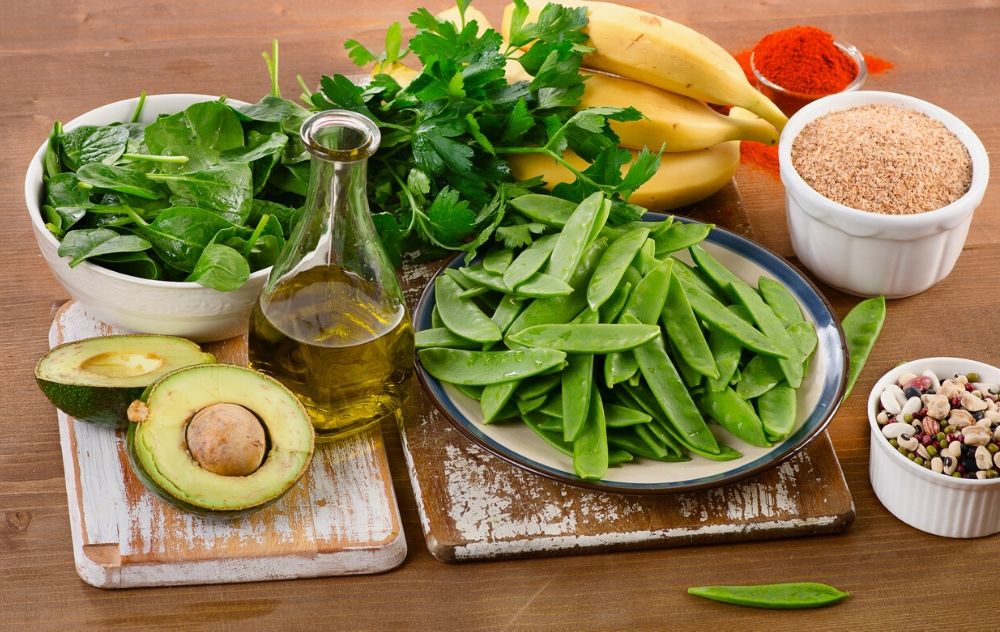What is Vitamin K?
The benefits of Vitamin K are very useful for maintaining good overall health. Vitamin K is a nutrient that plays an important role in building bone health and good blood clots, yet most people are not getting enough of it in their diets. There are two different forms of Vitamin K, K1 and K2. K1 is mainly in plant foods like leafy greens. Vitamin K2 is often in animal sources, green leafy plants, and fermented vegetables.
Vitamin K is responsible for helping protein and calcium work in harmony with each other in our body. It works in the liver to activate proteins that help with good blood clotting. K2 is used by other tissues to make sure that calcium only goes where it should be and that it doesn’t get stored in the arteries, vessels, or kidneys.
In 2016, there was a scientific study[1] published in Atherosclerosis that found a link between a high intake of Vitamin K2 and a reduced risk of Peripheral Artery Disease (PAD). Researchers surveyed over 36,000 participants about how frequently they ate certain foods high in Vitamin K1 and K2. They then followed up with those participants 12 years later and determined that the participants who reported frequently eating foods high in Vitamin K2 had significantly less risk of developing PAD.
SIGN UP FOR MORE HEALTH NEWS & UPDATES
The Importance of Vitamin K2
Results of this study are valuable to fully understand the importance of eating a well-balanced diet. Before this study, scientists were not aware of how Vitamin K2 could benefit the cardiovascular and arterial system.
The two main factors that determine long term health are lifestyle choices and diet. If more people were aware of the benefits of eating foods with Vitamin K2, there would be less people suffering from the symptoms of PAD as well as other the serious conditions that affect the vascular system. Consuming enough vitamin K is important for a number of bodily processes, including clotting of the blood. Although it’s not serious, a lack of Vitamin K2 can cause the blood to take longer to clot, making you more vulnerable for external wounds like bruising and bleeding. Not eating enough foods with Vitamin K2 can also interfere with the strength of our bones which can often cause osteoporosis.
MEET WITH A VASCULAR SPECIALIST
Good Sources of Vitamin K1 and K2
As of now, only Vitamin K2 has been proven to benefit bone strength and the vascular system. That doesn’t mean that Vitamin K1 is bad or that it should be avoided, it just means that more useful benefit come from high intake of Vitamin K2. Vitamin K1 can also provide benefits to our health, but there is significantly less research about it being conducted. If you are looking to up the amount of Vitamin K you are consuming, try including some of the following foods in your next trip to the grocery store.
- Spinach
- Kale
- Turnips
- Olives or olive oil
- Spinach
- Sauerkraut
- Dense cheeses
- Peas
- Animal Liver or other animal organs
- Beef
- Pork
- Egg Yolks
- Kimchi
- Avocados
Peripheral Artery Disease and Vitamin K
It’s easy to think you’re getting enough vitamins, but it’s important to know how much of each you’re truly getting on a daily basis. Not having enough of one vitamin may put you at risk or help you prevent serious health conditions from developing. Peripheral artery disease is a serious condition that involves plaque buildup within the arteries. However, you can lower your risk of severe PAD by living a healthy lifestyle. The food we eat plays a major role in determining the quality of our life and our health. You don’t have to be vegan to be healthier—its about making the most positive choices in your life that will ultimately benefit your health, as well as your happiness. It’s also about educating yourself on what new studies say about nutrition and how you can implement these new habits.
SCHEDULE A CONSULTATION ONLINE NOW
At USA Vascular centers, we are dedicated to providing high quality care to anyone suffering with PAD. We want you to know that we truly care about helping you take back control of your health so you can finally start living a life you love. If you think you are suffering from PAD or just want to get checked, contact us today at 888.773.2193 to talk with on our representatives to find out how you can get back to being healthy.
Don’t feel like calling? Click here to schedule your evaluation online.

